New Initiative Offers Huge Opportunity for Auckland Creatives
The Big Idea and Tātaki Auckland Unlimited have combined forces to empower creatives - find out how you can get a funded position on the Creative Commercial Essentials programme.
Written by
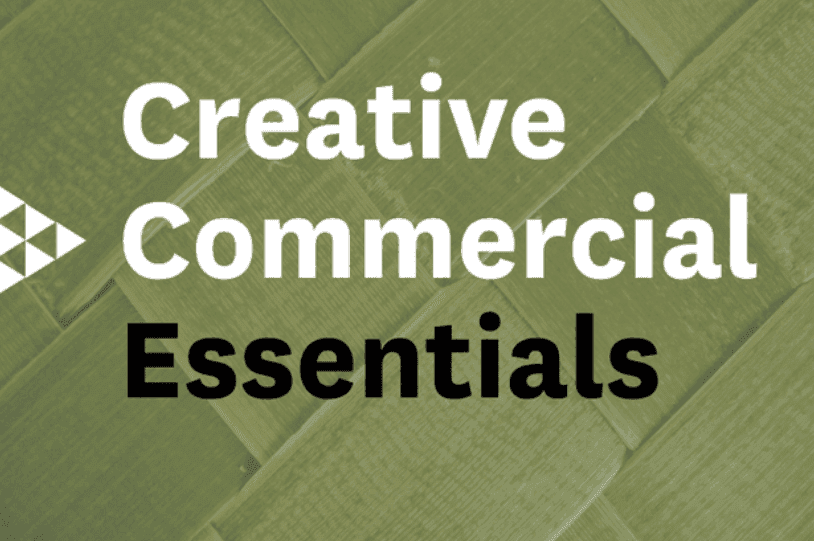
The spotlight on Tāmaki Makaurau Auckland’s creative future has never been more intense.
But some crucial rays of sunshine are punching through the grey clouds of uncertainty - with the announcement of a partnership designed to brighten the career prospects of Auckland-based creatives.
The Big Idea (TBI) and Tātaki Auckland Unlimited (TAU) - the region’s economic and cultural agency - have today launched Creative Commercial Essentials, a programme that will open up a new world of career-focused skills and support.
On offer is a nine-week Foundation programme starting in June, with 40 funded places for Aucklanders aged 18 and above who are involved in the creative industries, including (but not restricted to) film, television, gaming, immersive technologies, digital content, music and radio, performing and visual arts, design and built environment, culture and heritage arts.
This game-changing course will cover:
• Planning and visioning
• Selling yourself
• Business models and tools
• Marketing and social media
• Audience development
• Finance and administration
• Raising revenue
• Self-management
• Building networks
A funded advanced mentoring programme will also be available for 20 successful graduates of the Foundation programme.
Applications for Creative Commercial Essentials are open until 7 May (click here for details).
Cashing in on creativity
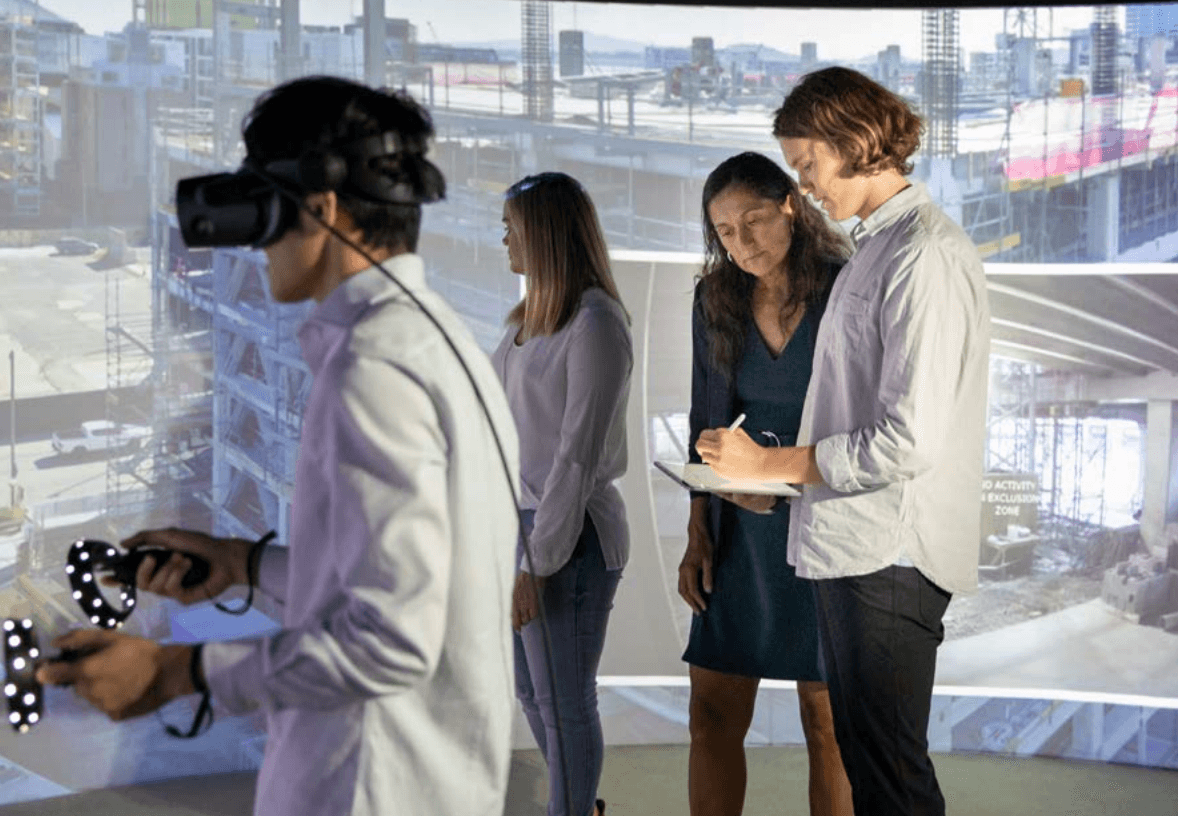
Auckland’s creative industries pack a punch - with more than 57,500 people in the sector. The city generates 50% of Aotearoa New Zealand’s creative sector GDP and is home to half of the country’s creative workforce.
In 2022 alone, the creative sector generated $7.8 billion in GDP, growing faster than any other sector in the Auckland economy - and with the forecast of a further 7,500 new job openings over the next five years, creativity’s value in Tāmaki Makaurau can’t be questioned.
Since TAU launched Create Auckland 2030 last year - a 10-year plan to grow Auckland’s creative economy - there has been a focus on building a stronger understanding of what the region needs to succeed.
TAU’s Manager Creative Industries Michael Brook has a long-standing and successful involvement in the sector over the past 30 years, particularly in the film industry. He explains the genesis of this programme was self-identified.
“It was a gap that we identified when we were doing our collaboration and engagement with the sector. What we heard was a real need to raise these commercial essentials, these business fundamentals.
“That's not to say that there's a lot of people in the sector who don't have those - there's plenty. But there's also a lot of people who said that's what would help them to further their business and expand their creative practice.”
Aligning visions
This sits directly in TBI’s driving kaupapa of championing the creative community and helping to build sustainable, rewarding careers for those involved in it.
The organisation’s Toipoto career development programme has become a crucial cog in helping creatives grow skills and networks to complement their already existing skills.
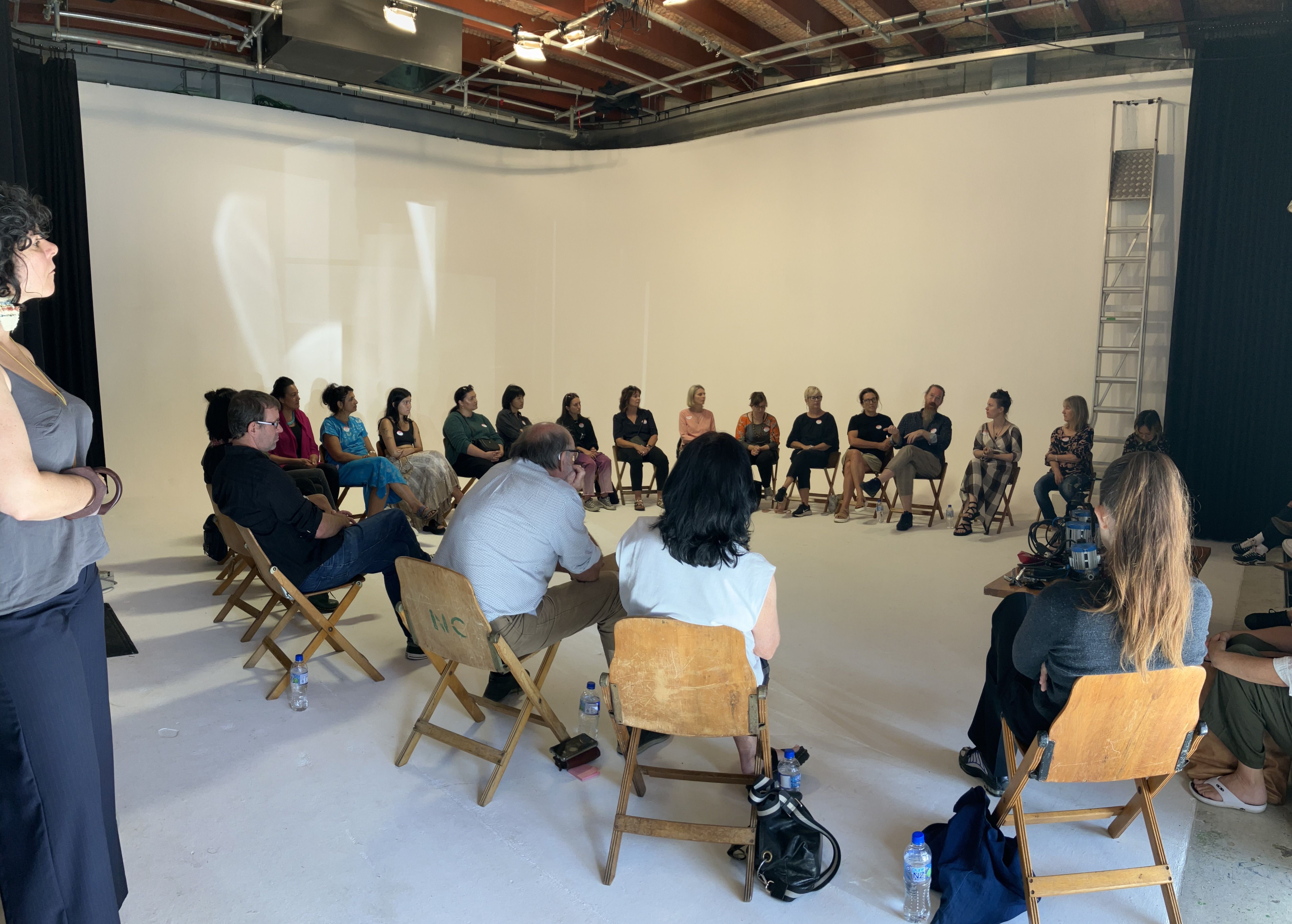
Chief Executive Annie Ackerman expands, “When we first began working with individuals on our mentoring programmes back in 2018, we could see that the sector has a craving for ongoing professional development.
“This is a perfect extension into working with not only individuals but partnerships, companies and collaborations in the creative industries.
“Establishing Toipoto two years ago gave us the ability to reach more people - it has touched over 275 creatives who connect with wider communities on a daily basis. In these times, the role of the artist and creative is pivotal - we need to take the long view, to frame success in terms of a more exciting and strategic sense of what the region can be.”
One of the leading advocates for this mahi is someone with a deep understanding of both sides of the fence - decorated artist Teremoana Rapley is a Taite Music Prize winner and Hall of Famer, as well as TAU’s Senior Advisor for the Creative Sector.
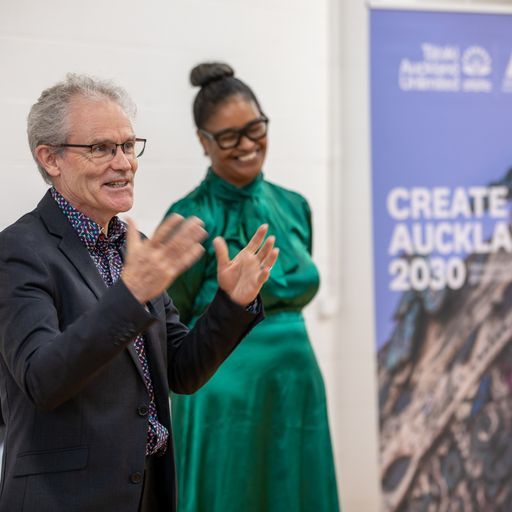
Personally and professionally invested in the arts, Rapley is clearly excited about this partnership.
“It's about empowerment, the shifting of power back to the creative,” she enthuses.
“When I started on this work, TBI was the first platform that came to mind. I know people that have gone through programmes there - it's been all positive from other creatives.
TBI is a living platform - it's not a stagnant space for people to just come and have a look and then head off. It's actually there to serve and it's doing its job.
Brook adds, “We knew TBI was already experienced and delivering really good sector business capability programmes - we don't need to recreate or reinvent the wheel when there's already someone out there delivering great results who we can work with.”
Harry Silver has just been appointed as Director of Development and Capability and will lead TBI’s extension into Creative Commercial Essentials. He sees it as “a natural next step”, outlining that it “aligns TBI’s vision to empower and connect Aotearoa’s creatives with Tātaki Auckland Unlimited’s mission to enable the creative economy.
“This is a crucial time for Tāmaki Makaurau’s creative community. It is essential we support the future of our ecosystem, providing the nutrients needed to thrive.”
Do business and creativity mix?
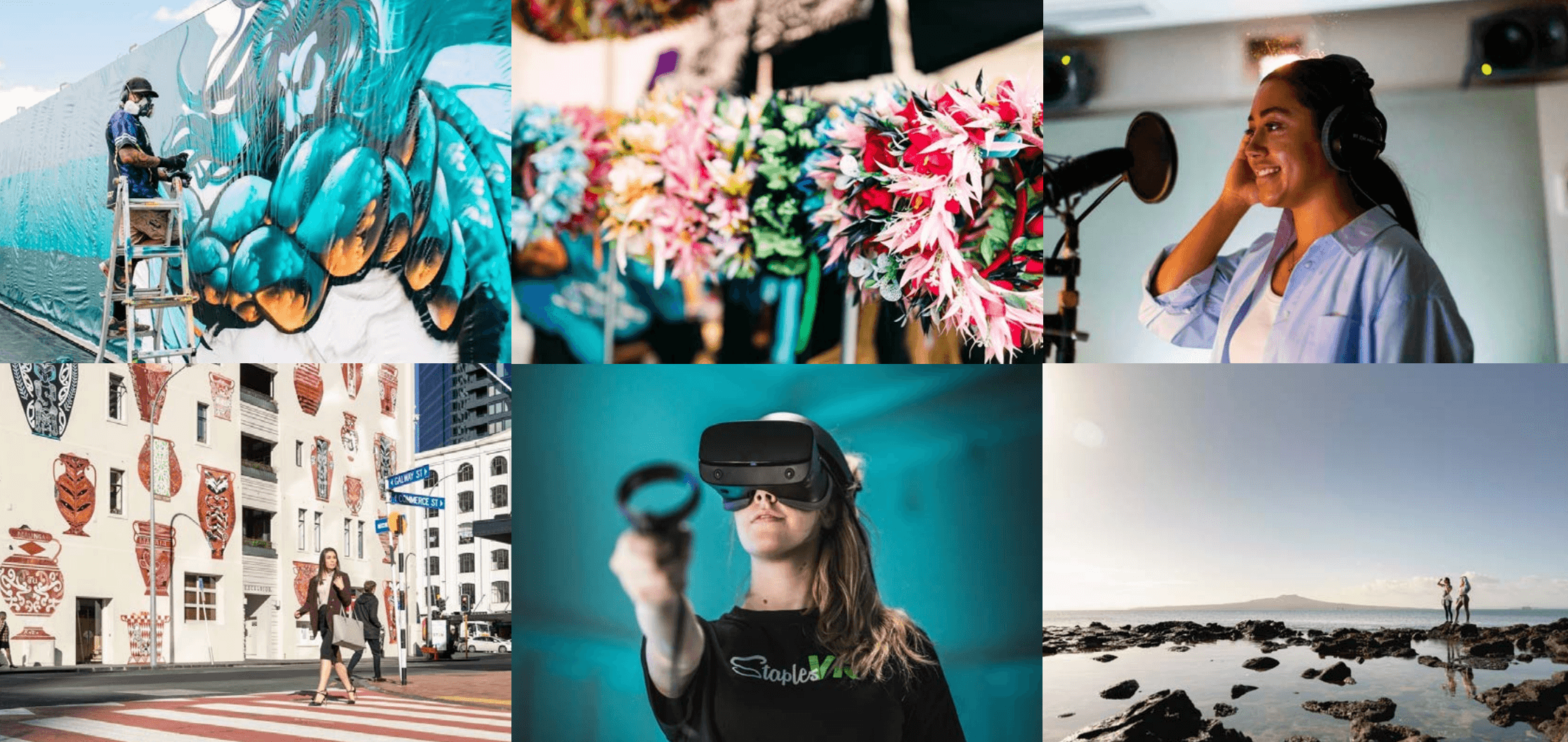
Rapley sees the new programme as having a vital role in their goal of growing Auckland’s reputation as a creative destination.
“The impact that we’re looking for is obviously at an individual level, as well as a business level.
“Creatives don’t like that word, business. We came across many who didn't realise that they were a business. We’d say to them, ‘If you were selling things or a service, if you're getting paid for it, that's actually your business’.
“So, what we want is to help create an understanding of the economic transformation that needs to take place in the creative industries for Auckland to navigate towards being a global creative capital.”
Knocking down thought barriers is a big part of this programme. It’s not just for practising creatives who don’t consider themselves to be a business but also for people whose skills are in an adjacent career pathway.
Brook points out that creatives aren't just exclusively artists.
“There are people all through the economy who are contributing to the production of creative content. Whether that’s on a film set, in a gaming studio, or as an educator - in the end, they’re contributing to this creation of content, so we want people to see themselves as part of that.
“This is open to people who are new entrants to the sector and feel that they're part of a creative career, but also open to people who are already running a business or a practice who are actually doing reasonably well but feel they would like to build those skills.”
Rapley agrees.
It's not about a handout, it's about a hand up.
“Whoever participates in the programme - whatever they do with it, they will determine what will happen. It's not actually up to us. We're just here to provide the tools and resources.
“Create Auckland 2030 is based on what we heard from people we spoke to - saying that they wanted more cohesion, more collaboration, and more opportunity. This is part of that…whether you’re looking at the ecosystem itself, or just where you sit within that space.”
Who should apply?
Silver sees Creative Commercial Essentials as a way to “fast-track creatives into sustainable and rewarding careers.”
He continues, “This programme will absolutely make a contribution to the vibrancy and health of the ecosystem. These participants will become part of the Toipoto movement, raising the tide of creatives living sustainable and rewarding careers in the creative sector.”
Ackerman adds, “The name of the game is breakthrough. Working as a creative can sometimes feel lonely and siloed - this will be a dynamic programme where there will be peer learning and chances to collaborate.
“The more we work with mentoring, the more we see the generosity of the creative industries to help the emerging generation – that’s the sort of shift we want to see.”
As with all the Create Auckland 2030 initiatives, Brook has far-reaching aspirations for Creative Commercial Essentials.
“We'll have people coming through the programme and then consequent to that, we'll have some of them doing the mentoring.
“That is a regenerative approach - what we are really hoping for is that those people gain those skills and then they evolve to be the people who help others gain skills and eventually also become mentors.
“So, in the long term, aside from economic factors around business growth and jobs and so on, we're also building a base of skilled individuals who are involved in cohorts and can then come back and start doing the same thing, offering the same levels of support.
One of the important parts of Create Auckland 2030 is an opportunity: we really want people to know that this is an opportunity for them to participate. If they have hopes and ambitions around their creative business and creative practice, and they really want to build these skills, then this is one of those opportunities.
Silver declares, “This is a unique opportunity to take your creative career to the next level and be at the forefront of the creative industries in Tāmaki Makaurau.
“You’ll need to be committed to your mahi and determined about achieving your potential.”
Rapley has a wealth of first-hand experience of what it takes to make a career out of the creative sector. She expands, “You may think these skills are just something small but that's how things get started. So, bit by bit, you chip away at it, and you learn.
“For the creative economy to thrive, there needs to be collaboration. Whether it be internal or external, that's so important - and you will be part of that if you are involved in this programme.”
Applications for the 40 funded places for Creative Commercial Essentials are open until 5pm, 7 May - click here for more details.